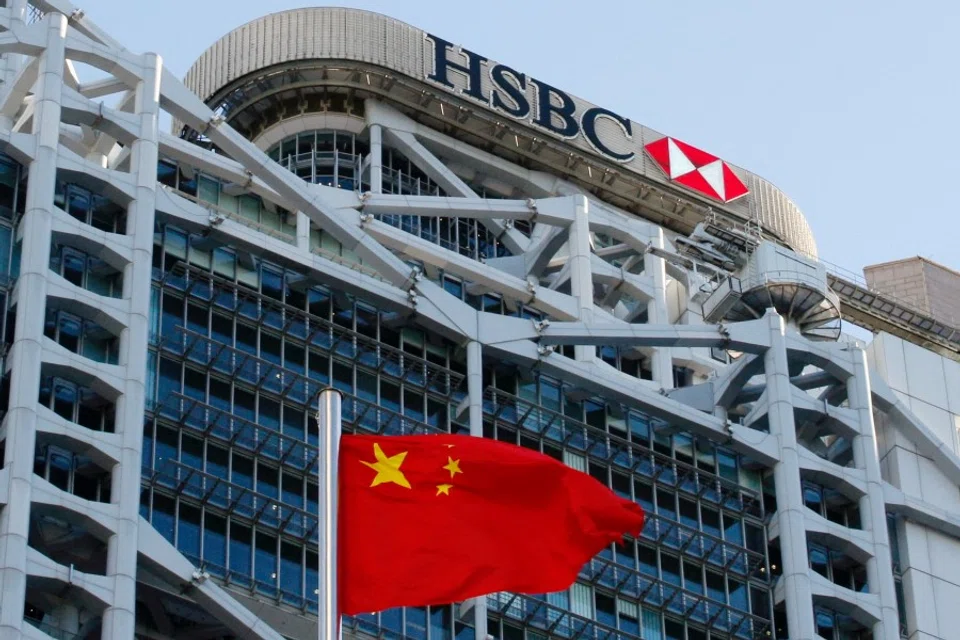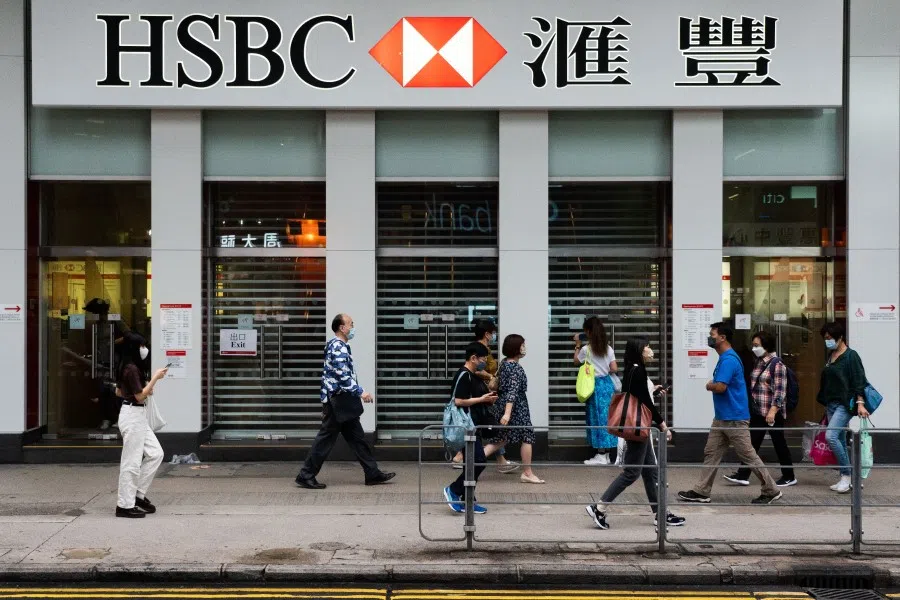A geopolitical read of HSBC's potential split-up
While the drama over a potential split-up of HSBC is still unfolding, what is clear is that geopolitical tensions may raise the stakes on potential financial decoupling down the road. Mixed West-East financial institutions such as HSBC stand at the forefront of the transitions and realignments under way.

HSBC's largest strategic investor - Chinese insurance company Ping An Group - asked for the bank to split its Asian operations some weeks ago. Although the full story on this issue is yet to unfold, and the Chinese media reported later that Ping An did not introduce the plan and only showed its support, the development clearly deserves our attention.
A potential split-up of HSBC's businesses in the West and East can be a landmark example that decoupling between the West and China does not stop at trade and value chains but expands on the financial front.
After the Covid-19 pandemic and Russia's invasion of Ukraine, the decoupling wind has been blowing stronger than ever.
From an investor's point of view, there are reasons for Ping An to support the proposal, especially after the unwelcome request by the UK to cut HSBC's distribution of dividends to shareholders. Together with the relatively weak revenue from Europe, investors in the more profitable Asian arm of HSBC's businesses may see a better prospect in share prices.
Geopolitical tensions and greater risk of decoupling
While the conservative stance of the UK's regulators and the divergence of profitability with HSBC can explain the move, the geopolitical tide is another muted but important factor to watch. After the Covid-19 pandemic and Russia's invasion of Ukraine, the decoupling wind has been blowing stronger than ever.
The West has also imposed sanctions on Russia due to the aggression against Ukraine, many of which are financial. And China's ambiguous stance on the war while keeping an anti-Western narrative can open a Pandora's box of secondary sanctions if it supports the Russian military or does not comply with the financial sanctions.

So far, China seems to be complying with such sanctions but is still keeping a pro-Russian stance. The miscalculation risk from China's side is apparent, all the more so as the West broadens and strengthens the sanctions. Recently, the EU has imposed an embargo on oil imports from Russia, following the decisions of the UK and the US. As Russia sees its foreign currency revenue stream shrinking, the need for China's support will become bigger, increasing the likelihood of secondary sanctions if China decides to bypass any of the Western sanctions on Russia.
As if this were not enough, the US-China tensions with Taiwan have only increased over the last few years, especially after the Ukraine-Russia war. Therefore, it implies that the risk of sanctions on China could go beyond the crisis in Ukraine.
A critical aspect of the sanctions-related risks comes from Western financial institutions operating in China and whether they would be forced to retrench suddenly.
A series of mutually reinforcing events
While it is still unlikely, such a scenario would have significant consequences on financial integration between the West and China. For example, one can imagine that Western portfolio inflows into China, and foreign direct investment based on Russia's experience, will retrench. The same is true the other way round regarding Chinese investment in the West. For example, it is reported that the China National Offshore Oil Corporation (CNOOC) is looking to exit its operations in Canada, the UK and the US.

In addition, it is also news that the People's Bank of China (PBOC) has been seeking advice from different players regarding what actions China can take to minimise the impact of such potential sanctions. A critical aspect of the sanctions-related risks comes from Western financial institutions operating in China and whether they would be forced to retrench suddenly.
HSBC is the Western financial institution with the largest presence in Hong Kong and mainland China. Its shareholder structure is very mixed with Ping An as the largest strategic investor.
In that regard, it is important to note that Ping An's ownership is still mainly in the hands of the Chinese government as it has only moved from its state-owned status to mixed ownership after listing on the stock exchange. Its action on its stake in HSBC could pursue broader objectives than merely getting a larger return from its investment.
While this hypothesis is obviously not proven, it will be important to watch Ping An's next steps to assess the relative importance of business versus geopolitical reasons behind its push for a break-up of HSBC.
... it will be essential to look into further actions on financial decoupling to assess better the future of mixed West-East financial institutions, such as HSBC.
Beyond watching the HSBC-Ping An saga, it will be essential to look into further actions on financial decoupling to assess better the future of mixed West-East financial institutions, such as HSBC.
The delisting of Chinese companies from US stock exchanges is an important landmark in financial decoupling. But the push for Chinese institutions to use its international payment system (Cross-Border Interbank Payment System (CIPS)) instead of the global mainstream system (Clearing House Interbank Payments System (CHIPS)) is equally relevant.
The more these trends solidify, the harder it will be for mixed institutions to keep the current set-up, further pushing financial decoupling.
Related: Funding wars between China and the West: The politics of bankrolling developing countries | Chinese financial institutions drawn to Singapore and Southeast Asian markets | Digitalisation: How China's smaller investment banks could compete with big foreign players | Blindspots in the financial regulation of China's tech 'platform companies'



![[Big read] When the Arctic opens, what happens to Singapore?](https://cassette.sphdigital.com.sg/image/thinkchina/da65edebca34645c711c55e83e9877109b3c53847ebb1305573974651df1d13a)

![[Video] George Yeo: America’s deep pain — and why China won’t colonise](https://cassette.sphdigital.com.sg/image/thinkchina/15083e45d96c12390bdea6af2daf19fd9fcd875aa44a0f92796f34e3dad561cc)